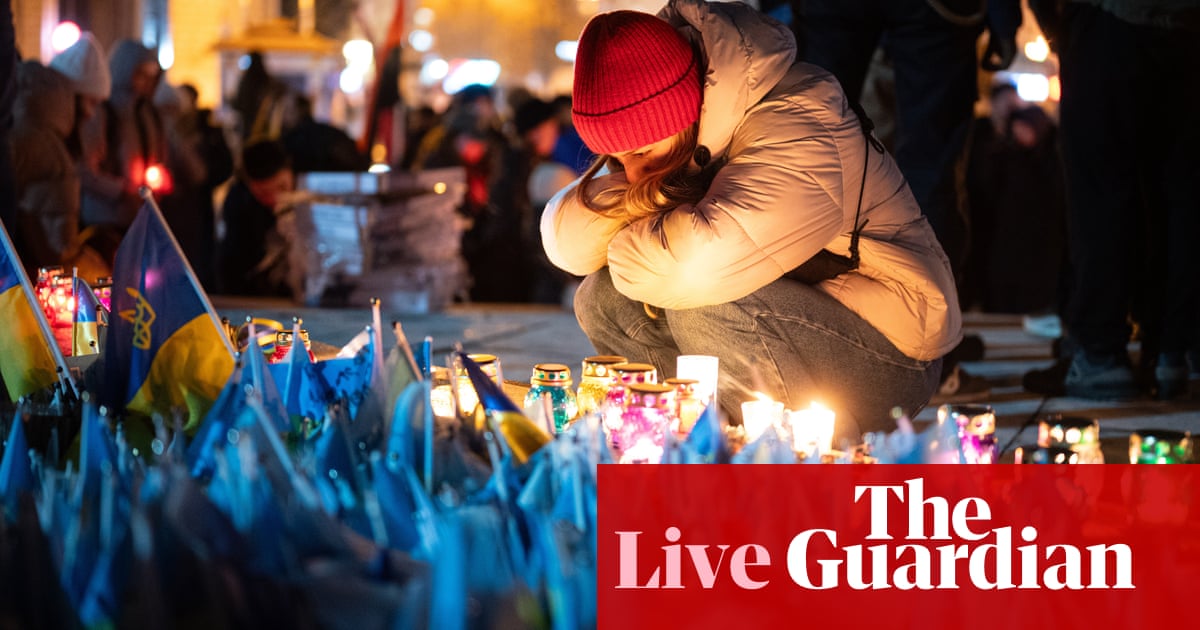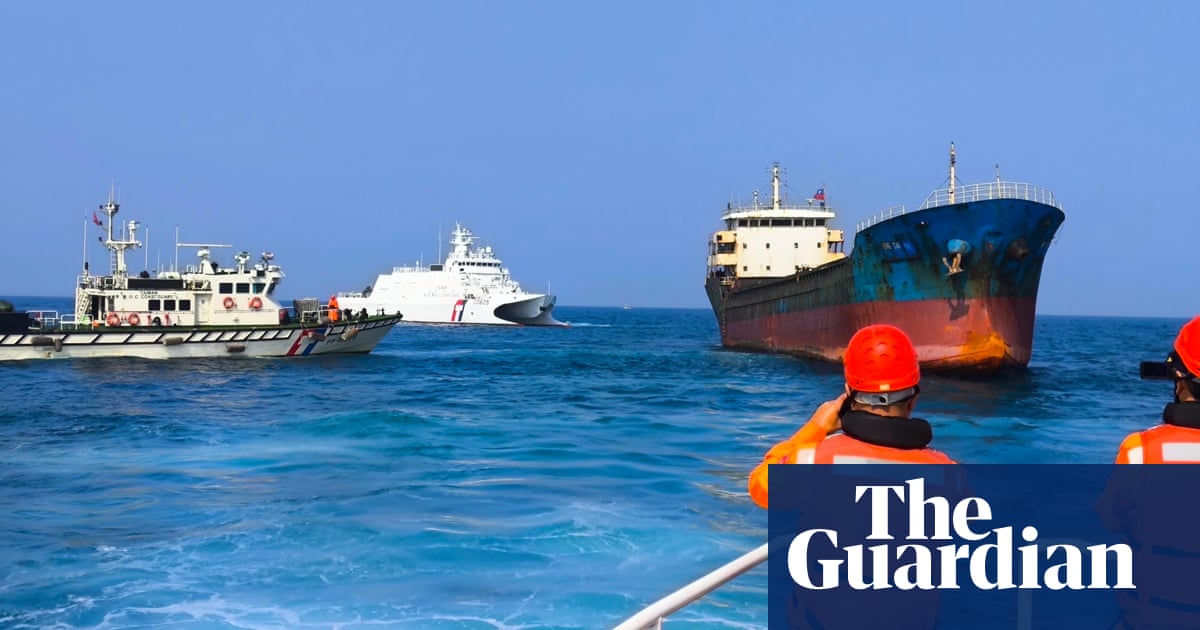After the fall of Bashar al-Assad in Syria, Bulgaria is attempting to force out Syrian asylum seekers by reportedly pressing them into signing “voluntary return” documents, sometimes with the use of violence.
No Name Kitchen (NNK), a humanitarian organisation working with immigrants in the Balkans, has collected evidence of increased harassment of Syrian people on European borders since the Syrian opposition armed forces ousted the Assad family, ending a 54-year bloody regime.
NNK’s report, reviewed by the Guardian, includes testimonies, pictures and documents on how Bulgaria is trying to repatriate thousands of Syrian asylum seekers, subjecting them to extensive interrogations about their perspectives on Syria to justify rejecting their claims.
On 13 December, NNK met people staying in a reception centre in Harmanli, a town in south-central Bulgaria, where 200 Syrians, including women and children, had been taken for interrogation that day. Videos obtained by NNK and seen by the Guardian show dozens of asylum seekers detained in the facility, awaiting questioning from Bulgarian officers.
There, according to testimonies collected by activists and aid workers, the Bulgarian authorities, often by force, pressed them into signing a series of documents, including voluntary return papers.

People were reportedly held in the room until they had signed. “My friend said that when the interview ends, you cannot leave without signing,” a witness said. “There is someone waiting for you inside the room, telling you to sign here. You cannot do anything because violence will be used on you.”
One asylum seeker reported: “[They] beat up two elderly people in front of my eyes.”
Syrians held in the facilities were reportedly asked for their views on Assad’s regime, and asked questions such as “is Syria now safe for you?”, “is there no war?”, “how did you feel when Bashar al-Assad fell?”, and “how did you feel when Syria was liberated?”.
When asked if he was “happy about the fall of Assad”, a Syrian man told NNK, “you naturally say to them ‘yes’, [and] this evidence is used against you and to return you to Syria”.
The NNK report states: “In addition to the fall of Assad being used to coerce people into signing voluntary return documents, the shift in regime is also being used as an opportunity to deny and restrict access to the right to asylum, rejecting people’s claims on the basis of the change of leadership and not the facts of their individual case.”
Syrians reported that officers “came to the dormitories one by one and took them by the hand until they were brought inside the building”, and said things such as “we will bring you to the gendarmerie and imprison you” and “do not be afraid, we will return you to Syria without any pressure”.
Some interrogations reportedly took place without translators. As a result, the content of some of documents was unclear. The Guardian was unable to review the content of the papers as camp authorities refused to share them with NNK and aid workers.
One person said: “I don’t really know what this paper is that we are signing, because the translator does not tell us what this paper is. They say it is a paper to take us to Syria.”

The Guardian spoke to a man who fled Syria in 2017, spent six years in Turkey and has settled in Bulgaria, residing in a dormitory at Harmanli’s asylum centre. “In the dead of night, officers burst into our dormitory claiming they needed to question us,” he said. “We were crammed 50 to 60 people into each room. Then they began to beat us. The centre’s director was laughing and told us ‘you must go back to Syria’. We told him we were here to apply for asylum in Europe. But he replied: ‘Syria is safe now, you can go back.’”
The man said he was forced to sign a paper, the contents of which remain a mystery to him due to the absence of a translator.
In order for the authorities to achieve their goal of returning Syrians to their homeland, a man said, “they want to obtain a confession from you, in your voice, in your name, and in your signature, that Syria is somehow safe.”
NNK obtained an official document from the Bulgarian authorities, which has been reviewed by the Guardian, detailing a Syrian girl’s rejected asylum application. The rejection occurred a few days before the fall of Assad, as armed opposition forces were advancing towards Damascus.
after newsletter promotion

After an initial examination, “it became clear that the situation in Syria is still unsafe with attacks by extremist groups”, reads the document, the exact date and further details of which cannot be disclosed to protect the identity of the people placed under interrogation.
However, in spite of the concerning violence, the Bulgarian official concluded that the incidents were “sporadic” and “cannot be considered an armed conflict”, and that “the security situation in the country” had significantly improved. As a result, the request for asylum was rejected.
According to the UN’s International Organization for Migration, speaking to NNK, there are no ongoing processes for the voluntary return of Syrians from Bulgaria. This raises concerns that Bulgarian authorities in charge of migrant centres may be acting on their own accord, without the oversight or coordination of the IOM.
Bulgaria has faced mounting pressure from the EU, of which it is a member, to prove its capabilities in effectively securing its frontiers, a crucial step for the nation to attain complete membership of the border-free Schengen zone.
Last week, the UK and other European countries including Norway, Italy, Austria and the Netherlands said they would suspend the processing of asylum applications from Syrians after the fall of the Assad regime. The moves come despite a lack of clarity over what lies ahead for Syria.

Further evidence was shared with NNK by a Dutch pro-immigration NGO, MiGreat, regarding the harassment of asylum seekers in the Netherlands. One asylum seeker reported that an agent from the Netherlands’ Repatriation and Departure Service had said to him: “Syria is good now. Did you know that if you resist deportation, your procedures will be extended by 18 months, the police will be looking for you and they will arrest you even if you’re just riding your bike? You’ll be left without food, shelter or anything. Is that a life?”
Similar harassment was reported to MiGreat by asylum seekers across the Netherlands.
Austria is already preparing a “repatriation and deportation” programme to Syria. Less than a week after the ousting of Assad, the country’s conservative-led government said it would offer Syrian refugees in the country a “return bonus” of €1,000 to move back to their homeland.
NNK’s violence reporting coordinator, Esme Smithson Swain, said: “The testimonies we have received from across Europe are deeply troubling. The fall of the Assad regime has provided a pretext for EU states to obscure hostile migration policies. The EU must recognise that the fall of a dictator does not erase decades of conflict.”
The Guardian has contacted the Bulgarian interior ministry and the Netherlands’ repatriation and departure service for comment.
Marta Bellingreri and Pjotr Sauer contributed to this article.

 2 months ago
36
2 months ago
36













































